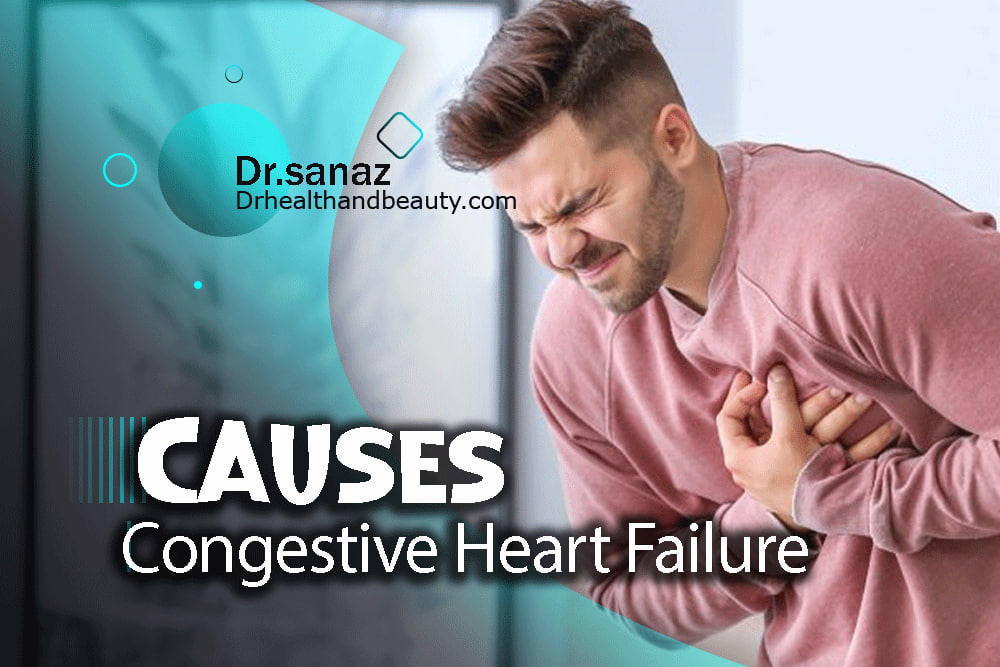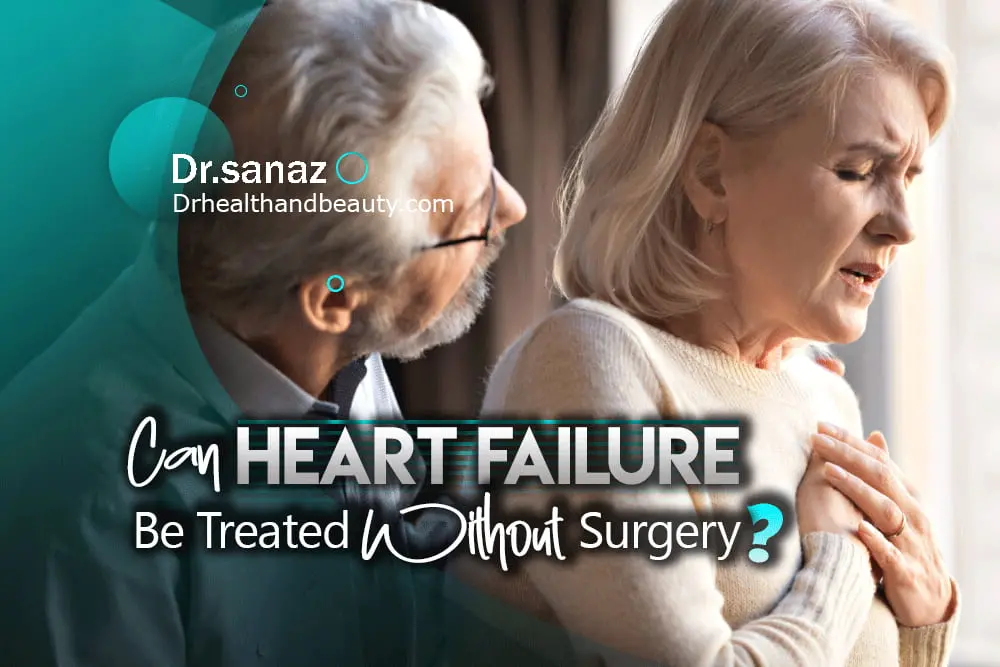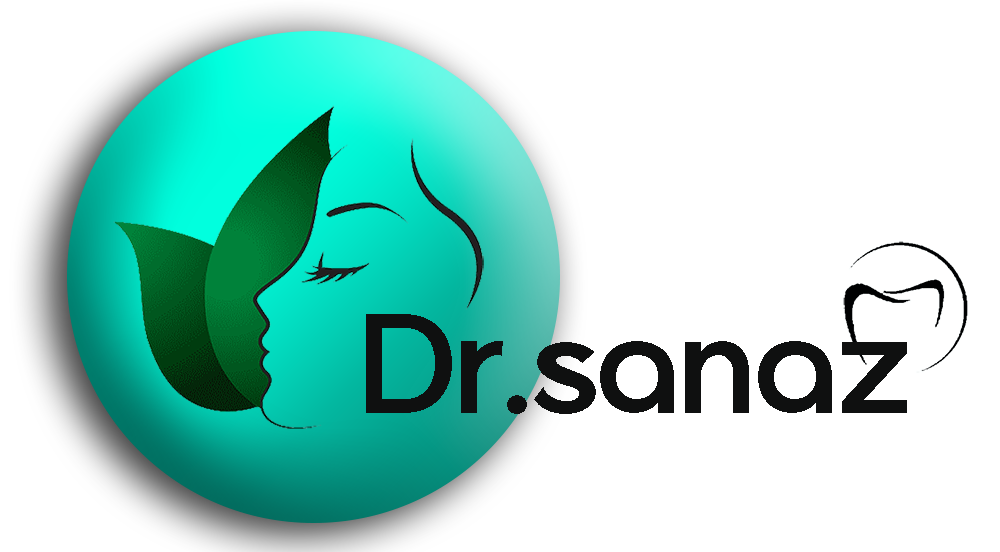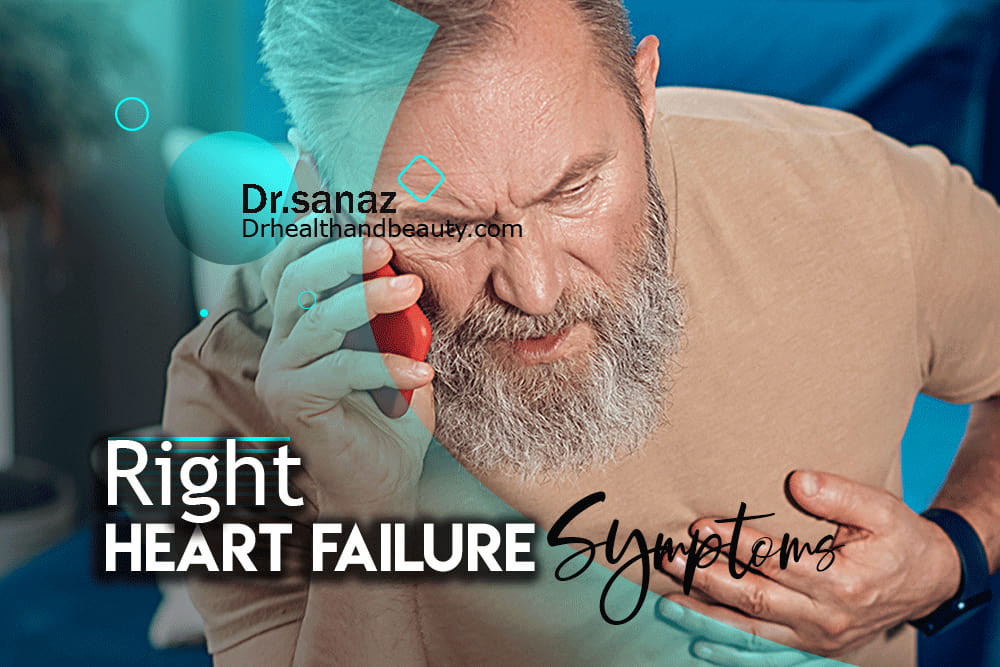

Knifeless Victory / Can Heart Failure Be Treated Without Surgery?
The content of this article is approved by “drhealthandbeauty” experts.
Note: This article is only to guide and increase your knowledge. Before taking any action, you can consult “drhealthandbeauty” doctors or your doctor for treatment.
Heart failure disease can be known as a sensitive and widespread disease, although based on type and stage of heart failure there is a wide range of surgical treatments for heart failure, or in other words invasive. As its prevalence continues to increase globally, understanding and harnessing the power of non-surgical interventions becomes increasingly critical.
In this article from drhealthandbeauty by Dr. Sanaz, where we look for effective strategies to manage this common cardiovascular disease without invasive methods, we examine a myriad of non-invasive methods, from lifestyle modifications to advanced drugs and innovative devices, all aimed at improving heart function. , increasing the quality of life and extending survival.
So, whether you’re a patient looking for an alternative to surgery or a healthcare professional exploring the latest advances in CHF management, join us on this journey to discover the myriad possibilities for fighting congestive heart failure without going under the knife.
Table of Contents
Nonsurgical treatment methods for heart failure
Treatment of heart failure by treatment of the underlying factor:
Various factors such as coronary artery stenosis, high blood pressure, anemia, thyroid diseases, heart rate irregularities, and diabetes can lead to heart failure, the treatment of which helps to cure heart failure.
.
Treatment of heart failure by modifying lifestyles:
Changing life habits often lead to recovery or control of some factors affecting heart failure. In this treatment method, it is recommended:
- Maintaining daily physical activities and participating in rehabilitation programs.
- Balance in the amount of fluid consumption during the day and night (considering that water accumulation in the body often occurs in heart failure, ask your doctor about the permissible amount of fluid consumption during the day and night.)
- Quitting smoking (in people who quit smoking, there is a greater chance that the symptoms of heart failure will improve.)
- Paying attention to excess weight (sudden excess weight can be a symptom of fluid accumulation in the body and the progress of heart failure. Check your weight every morning after urinating and before eating breakfast. Excess weight is more than 1.5 kg in one day. Day or more than 2.5 kg in a week needs to see a doctor.)
- Cut off alcohol
- Limiting caffeine consumption (do not consume more than one to two cups of coffee during the day).
- Have a proper diet (eat low-fat, salt-free food rich in fresh fruits and vegetables).
- Avoid stress (sit quietly for 15-20 minutes every day, take deep breaths, and think of a relaxing scene.)
- Take care of your symptoms and inform your doctor about their changes.
- Influenza and pneumonia vaccination (Influenza and lung infections are considered a big risk for heart failure patients. Annual influenza vaccination and one-time pneumonia vaccination are recommended for patients.)
- Sexual activity: (Many heart failure patients can have their usual sexual activity. Choose for this purpose the times when you feel better and have less daily stress.)
- Choosing the right clothes (avoid wearing tight socks and choose clothes according to the temperature)
.
Nonsurgical treatment of heart failure with rehabilitation and exercise:
Regular exercise has many benefits in patients with heart failure:
Performing physical exercises by the patient increases the patient’s tolerance to fatigue, reduces the incidence of shortness of breath, and improves endurance and tolerance of physical activity. This condition enables them to do most of their daily tasks and personal tasks by themselves.
Also, physical exercises reduce patients’ depression and improve their general health. Aerobic exercises that take place in the form of walking, cycling, jogging, and especially home exercises on exercise bikes increase the physical fitness of the patient.
Performing strength exercises by the patient not only improves strength and muscle mass but also increases muscle endurance. Physical activity has a positive effect on heart muscle function and stroke volume.
You should consult with your medical team to begin an exercise program. If you do not have the prohibited conditions for exercise, they will do an exercise test on you and select you for the type and amount of exercise.
It guides. For more guidance, it is better to refer to cardiac rehabilitation centers and start exercising in these centers first.
Patients with chronic heart failure should begin a rehabilitation program as soon as they are discharged from the hospital to ensure and prevent re-hospitalization.
Aerobic activity is usually preferred, in which the intensity and duration of physical activity sessions gradually increase. At first, the physical activity of patients should be done under the supervision of a doctor.
Examples of increasing aerobic exercise programs for patients with chronic heart failure:
During the first four weeks, the sessions start with a 10-minute warm-up at low intensity in the form of walking or cycling, and after that, the intensity of physical activity increases to moderate intensity for 10 minutes and continues for 5 minutes at low intensity. he does.
This program is repeated two times in the first week, three times in the second week, and four times in the third week.
The training program in weeks 4-8 is the repetition of the program of the third week.
There are many exercises that you can learn in rehabilitation centers and repeat in your daily life.
Nonsurgical treatment of congestive heart failure with diet:
Proper nutrition plays an important role in the health of patients with heart failure. Proper nutrition will reduce the symptoms of the disease, reduce your need for some drugs, and make the drugs work better.
It is important to pay attention to these nutritional points:
-
Food salt restriction:
- Salt causes water to accumulate in the body, and this leads to increased shortness of breath and swelling in the body, and the heart has to work harder. Salt consumption should be reduced to less than four grams per day. Observance of the following will help you to reduce your daily salt intake:
- The daily salt you need is available in foods, so do not add salt to food at all while cooking and eating, and keep the salt shaker out of your reach.
- To flavor your food, instead of salt, use suitable spices and seasonings such as garlic, onion, bell pepper, fresh lemon juice, basil, oregano, and savory. You can use these spices fresh or dried when preparing food.
- Fresh vegetables and vegetable salads have little salt, and you can use them but do not add sauce to them. You can add a little lemon juice or vinegar to them.
- Fresh fruits do not have much salt, and use them, but avoid compotes and industrial fruit juices.
- Fresh meat, chicken and fish, yogurt and low-fat milk, eggs, beans, and rice do not have much salt, and you can consume them, but do not add salt to them when cooking.
- Avoid industrially prepared foods such as canned goods, sausages, and smoked foods because their salt content is high.
- Limit your intake of cheese as they are often high in salt.
- When choosing lunch and dessert snacks, be sure to pay attention to their salt content and prepare salt-free varieties.
- Try to be able to read the salt content of foods from their labels and choose low-salt varieties.
.
-
Fluid intake:
- Most patients with heart failure can consume enough liquids (water, tea, soup, milk, etc.) (two to three liters per day), but they should be avoided. In some patients whose edema is not controlled or whose blood sodium is low, fluid restriction (less than two liters per day) is necessary, in which case your doctor will guide you.
- A simple way to find out how much salt and fluid you consume is to measure your weight daily. Measure your weight every morning after you urinate and before you eat breakfast. Your weight should be almost constant. If your weight increases by more than two kilograms, you are probably bloated. Limit your salt intake and call your doctor.
- Alcohol: Avoid drinking alcohol, and especially if your heart failure is related to alcohol consumption, you should avoid consuming any type of alcoholic beverage.
.
-
Low cholesterol diet:
In many patients with heart failure, there is also coronary artery stenosis, and in these cases, it is necessary to follow a low-cholesterol diet: avoiding butter and animal oils, using low-fat meat, removing the skin from chicken, and using oil. Vegetables such as olive oil and sesame.
.
Other dietary recommendations:
You may have other diseases such as diabetes, high blood fat, gout, lung diseases, and heart failure, in which case you should get a diet plan by consulting a nutritionist. If you are losing weight, you should consult a nutritionist so that enough calories reach your body and reach the desired weight, and in case of obesity, you should consult a nutritionist.
All the recommendations mentioned above are for teaching the patient and may be changed in special cases with the opinion of the attending physician.
Nonsurgical treatment of congestive heart failure with drugs:
The drugs used to control heart failure are different in different stages of the disease, and depending on the severity of the disease and its causative agent, different drugs can be used.
Medicine in the treatment of acute heart failure
In acute heart failure and in situations where the heart failure is very severe and a lot of fluid accumulation in the lungs prevents breathing and oxygen supply to the body, or there is a severe drop in blood pressure, the patient is admitted to a special ward and treated with injectable drugs. His serious condition and “pulmonary edema” are used. As:
Diuretic drugs.
Considerations for diuretics – Diuretics include the following:
- Lasix (furosemide), hydrochlorothiazide, spironolactone (aldactone), triamthrin-H
- Retention of sodium and salt in the body worsens heart failure; these drugs cause the excretion of sodium (salt) and chlorine and, as a result, excess water in the body through the kidneys. Therefore, these drugs increase the production of urine.
- Don’t forget to follow a low-salt diet and limit fluid intake because this will make these drugs work better.
- Usually, take this class on your medicines early in the day and in the morning.
- Measure your blood pressure before taking this class of drugs because these drugs may cause your blood pressure to decrease. Therefore, slowly get up from a lying position to a standing position.
- Avoid exposure to direct sunlight.
- Try to replace the amount of water you lost by drinking water or liquids.
- You can take your medicine with breakfast.
- Do not forget to eat foods rich in potassium, such as (bananas, raisins, peaches, dates, figs, grapes, oranges, and dried plum yolks) along with these drugs, especially (Lasix and hydrochlorothiazide).
- Of course, the two drugs spironolactone and triamterene-H cause potassium retention, and there is no need to consume foods rich in potassium.
- Routine blood tests to assess electrolyte levels (sodium and potassium) and report their values to your doctor or nurse.
.
Vasodilators such as nitroglycerin.
Considerations of vasodilators for nonsurgical treatment of heart failure
- These drugs include: Hydrolazine – Isosorbide – Nitrocontin
- In the first few days after taking these medicines, you may feel dizzy, light-headed or faint
- To minimize the effect of lowering blood pressure, you should get up slowly and avoid sudden movements.
- Check your blood pressure before and after taking the medicine.
.
Medicines to strengthen heart muscles or inotropic agents.
These drugs act directly or indirectly on the heart muscle to increase its contractile strength and thus improve cardiac output. As:- Adrenaline: This drug is used in emergency cases such as cardiac arrest, anaphylaxis, and severe asthma attacks. Dose and administration require accurate titration based on the patient’s response. Complications such as tachycardia, heart palpitations, high blood pressure, arrhythmia, anxiety, tremors, headache, and cardiac ischemia or potential infarction can occur in high doses.
.
- Noradrenaline: Mainly used in cases of hypotension or severe shock. Continuous recording of blood pressure and heart rhythm is necessary during administration. This drug can lead to complications like high blood pressure, reflex bradycardia, arrhythmia, peripheral ischemia, and tissue necrosis in case of extravasation.
.
- Dopamine: Low doses primarily dilate renal and mesenteric blood vessels, moderate doses stimulate the heart, and high doses cause vasoconstriction. This drug is used in various forms of shock and heart failure. It can have complications such as tachycardia, arrhythmia, high blood pressure, angina pectoris, and necrosis in case of extravasation.
.
- Dobutamine: Used in acute heart failure, especially when there is evidence of low cardiac output. Its complications will be tachycardia, arrhythmia, high blood pressure, angina pectoris, headache, and tremors.
.
- Milrinone: Used in acute decompensated heart failure when other treatments are ineffective. Its side effects can be blood pressure drop, arrhythmia, thrombocytopenia, ventricular ectopy, headache, and tremors.
.
In the acute stage of the disease, it may be necessary for the patient to receive oxygen or be connected to ventilators.
Medicine in the treatment of chronic heart failure
In stable conditions and after the acute conditions of the disease are resolved, oral drugs are used to treat and control heart failure.
Some of these drugs are necessary for the treatment of heart failure, and their regular use – even when the patient does not have symptoms of heart failure – improves the heart’s function and increases the patient’s life.
In some cases, the doctor notices heart failure while examining the heart for another reason or during the heart health checkup process without the person having any symptoms of heart failure. Numerous scientific studies have shown that the use of some drugs, even in the asymptomatic stage of heart failure, can improve heart function and increase a person’s life span.
Therefore, these people and all patients with heart failure should use these drugs unless prescribed by a doctor due to low blood pressure or other reasons. As:
ACE inhibitor drugs
ACE inhibitor family drugs such as captopril, lisinopril, and enalapril. These drugs reduce blood pressure and reduce the resistance to the heart, make the heart pump blood more easily, increase life expectancy, and reduce mortality.
These drugs can be used together to treat high blood pressure, which is commonly seen in heart failure patients.
Considerations:
- These drugs may be prescribed to you despite having normal blood pressure.
- One of the most important side effects of drugs like captopril and enalapril is coughing. By reporting this symptom to your doctor or nurse, your medicine may be changed.
- The best time to take the medicine is one hour before eating.
- Avoid taking anti-cough, cold, and anti-allergy medicines without a doctor’s prescription.
- In the first few days after taking these medicines, you may feel dizzy, light-headed, or faint.
- To minimize the effect of lowering blood pressure, you should get up slowly and avoid sudden movements.
- Check your blood pressure and pulse before taking the medicine. If you have symptoms after taking these drugs, check your blood pressure and pulse.
- Captopril may cause a decrease in blood sugar in diabetic patients, so if you have diabetes, monitor your blood sugar carefully in the first week.
- You may experience a disturbance in your sense of taste, which will go away 2-3 months after the treatment.
- These drugs may be used with caution in patients with kidney disease because these drugs increase creatinine and potassium levels.
.
ARB group drugs
ARB family drugs, such as losartan, help to reduce the symptoms of heart failure with the same mechanism of action as ACE inhibitor family drugs.
.
Medicines of the MRA group
MRA drugs such as spironolactone (aldactone) and eplerenone. On the one hand, these drugs have diuretic properties and remove the accumulated water in the body, and on the other hand, they reduce the damage to the heart tissue and reduce its fibrosis.
in the long run, especially in diabetic patients, they reduce mortality and disability. The heart helps.
Important note: Patients who use the above category of drugs, especially several drugs together, should be careful of excessive increase of potassium in their blood. (pay attention to the considerations of diuretic drugs)
.
Beta receptor blockers
Beta-blocker family drugs such as carvedilol, metoral succinate, and bisoprolol. This group of drugs reduces the heart rate and prevents its increase in activity, reducing the heart’s need for oxygen and increasing the contractile efficiency of heart cells.
.
Considerations:
- These drugs are usually used with caution in patients who have a history of asthma or respiratory diseases.
- They may cause you to feel confused and tired, lower your blood pressure, and lower your heart rate.
- Before taking these medicines, be sure to check your pulse and blood pressure, and if the pulse is lower than 50-60, avoid using it.
- It is better to take with food.
- Do not stop the medicine suddenly.
.
There are other groups of drugs that are prescribed according to the needs and symptoms of the patient, and the doctor may reduce or increase their amount or even stop their use after examining and examining the patient, such as:
Diuretic drugs
Diuretics such as furosemide, triamterene and hydrochlorthiazide. By excreting sodium and salt from the body, these drugs cause water to be removed from the kidneys and reduce water retention in the body.
Naturally, in patients who are not careful with their salt consumption, larger amounts of these drugs will be needed, and in proportion to the reduction in sodium and salt consumption, the required amount of these drugs will also decrease.
(Refer to the considerations of diuretic drugs)
.
Digoxin
Heart-stimulating drugs such as digoxin. This drug increases the contractile strength of the heart with a complex mechanism.
.
Considerations:
- This drug increases the contractile power of your heart and increases cardiac output. Be careful when using this drug. In addition, the therapeutic and toxic levels of this drug are very close to each other. It is called digoxin, and It is a double-edged sword. Take this medicine exactly as prescribed by your doctor and without increasing or decreasing the amount.
- Before taking this medicine, be sure to check your pulse; if your pulse is less than 50, stop taking the medicine.
- If you forget a dose of medicine, you have the opportunity to use the missed dose until 12 hours later. Otherwise (if 12 hours have passed), avoid taking the missed dose separately.
- Take your medicine at the same time on consecutive days. For example, every day at 9 o’clock.
- Keep the medicine in a dry and cool area.
- Avoid taking medicines such as antacids (Aluminum MG-Shirmagnesi) and cholestyramine for one hour after taking the medicine.
- Avoid self-administration of antibiotics (pus drying) or other drugs without your doctor’s opinion because these drugs interact with digoxin.
- If you take this medicine together with diuretics, don’t forget to take potassium-rich substances.
- Report the following signs and symptoms immediately. (Pulse less than 50-60, nausea, vomiting, diarrhea, abdominal pain, visual disturbances (seeing a green, blue, yellow, bright white or light halo around the organs)
- The earliest symptoms of digoxin poisoning are nausea and vomiting.
.
Of course, in addition to the drugs required for the treatment of heart failure, it is necessary for patients to take other drugs prescribed by the attending physician for the treatment of other heart diseases.
Although with the increase in the number of drugs used, the possibility of drug interactions increases, especially in the elderly, for some specific diseases such as coronary artery stenosis, artificial valves, diabetes, high blood lipids, high blood pressure, and the treatment of leg vein clots or embolism.
Other lung medications are required and should be continued under the supervision of a physician.
Patients with heart failure should consult their doctor before starting any new medication (by other doctors and for other diseases) to avoid drug interactions.
There are some medicines that are harmful to heart failure, and their use, even for a short period of time, can cause the symptoms of the disease to go out of control and make patients with heart failure sick.
Therefore, before using any drug, patients with heart failure should have enough information about: “What Drugs Should Be Avoided In Heart Failure?” .
Frequently asked questions
How does cardiac rehabilitation help to improve heart failure?
These programs help the patient to exercise properly and safely and modify their lifestyle, which is very useful for his heart. This program includes appropriate exercise instructions, education, and changes in risk factors like smoking cessation and diet changes.
In these programs, the person is supported emotionally. This program helps a person to meet other patients similar to him and choose a healthy and balanced way for his life in consultation with them.
–
How much salt can I consume?
If you have heart failure, your salt intake should not exceed 1500 mg per day.
–
How effective are nonsurgical treatments for different stages of heart failure?
The effectiveness of nonsurgical treatments for heart failure varies depending on the stage of the disease and individual factors of the patient.
In stage A, nonsurgical heart failure treatments can be effective in decreasing the onset of heart failure.
In stage B, the drugs used can help improve heart function, reduce the risk of progression to symptomatic heart failure, and increase life expectancy.
In stage C, nonsurgical treatments are important to manage Signs Of Heart Failure, improve quality of life, and reduce the risk of hospitalization.
In stage D, which is the advanced stage of heart failure, nonsurgical treatments focus on palliative care, sign management, and improving quality of life.
As mentioned earlier, stage D is the advanced stage of heart failure. So the patient by knowing that What Is A Sign Of Worsening Heart Failure? should take immediate steps to manage symptoms.
Conclusion
By reading this article on nonsurgical treatments for congestive heart failure, you will have learned that there are many options for managing this complex condition without resorting to surgery.
From medication regimens tailored to individual needs to lifestyle adjustments that promote heart health, all These non-invasive approaches offer hope and promise to patients around the world.
Although the valuable learnings of this article will give you a clear view and a detailed and reliable guide for you, the journey to optimal heart health does not end here.
It is essential to consult with health care professionals, including cardiologists and primary care physicians, to design a comprehensive cure plan tailored to your unique situation. Additionally, staying abreast of advances in CHF management and maintaining a proactive approach to self-care are essential steps in the ongoing battle against heart failure.

